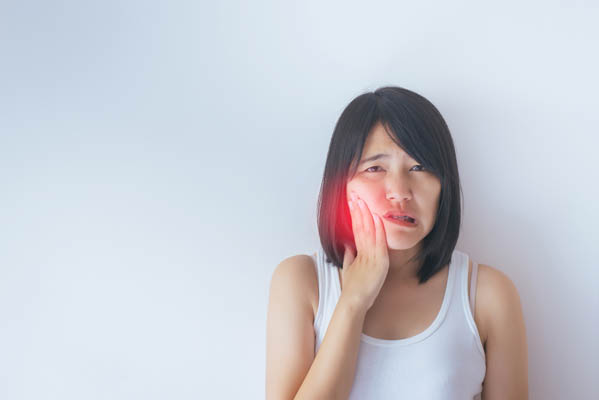Can a Dentist Help Relieve TMJ Pain?

Your TMJ (temporomandibular joint) is responsible for connecting the lower jaw to the upper jaw and the skull. Pain in this area can cause tenderness in your jaw muscles, jaw clicking, earaches, and headaches. This can disrupt your daily activities. If you want to know how your dentist can help with your TMJ pain, here are the details.
The massages
Temporomandibular joint pain can cause the jaw to dislocate. It can also cause the misalignment of teeth. These occurrences can affect the patient’s bite. One of the effective ways a dentist can help patients with TMJ pain is through massage.
The friction massage provides pressure on the area. Some patients find this enough for relief. This type of massage needs proper technique. The dentist can show the patient how to do it.
Locating the mandible muscle is the first thing to do. This is in the lower part of the jaw along the jawline. Applying constant and gentle pressure using the index finger comes next. The patient can experiment with the right amount of pressure.
The kneading massage gives a consistent circular pressure on the muscles and joints. Locating the upper jaw muscles comes first. These are behind the molars below the cheekbone. It is the flat bony plane toward the ear.
The patient will massage the area in a circular motion using two to three fingers. This improves lymph circulation, increases blood flow, and warms up the muscles. This helps expel toxic waste in that area. The patient will keep doing this until relief in the TMJ sets in.
The stretching massage involves placing two fingers of one hand along the lower jaw. Then, the two fingers of the other hand go above the muscles of the upper jaw. Pressing the fingers together until the tips are between these muscles comes next. Holding them for about three seconds and then relaxing them ends the massage.
The dentist can teach the patient how to do these TMJ massages at home. Finding the right levels of pressure and the exact points is the key to the success of the massages. Dentists can also suggest treatment options to go with the massages. Trying them out one by one can help the patient find the most effective massage.
Cold and hot therapy
The key materials for this TMJ treatment are hot and cold packs. The different temperatures aim to lessen the pain in the jaw. The heat and cold also help relax the tense jaw muscles. The patient can use this treatment up to four times every day.
Custom-fit dental appliance
Bruxism is teeth grinding or jaw clenching. This is often a cause of TMJ. Patients with this condition can get relief from a custom-fit dental appliance. The appliance is either a splint or bite guard. It will keep the lower and upper teeth from touching each other.
Relaxation techniques
A dentist can also teach the patient some relaxation techniques. Relaxing can help decrease or remove the pain. These techniques target the tense jaw muscles. Each one can reduce pain and lessen TMJ pain.
Your dentist can help you manage and treat your TMJ pain
Patients with temporomandibular joint pain often have a difficult time with eating and speaking. This can affect your self-image and daily activities. You can perform massages or go through the treatments your dentist will suggest. An appointment with your dentist can determine which treatments can help you most.
Are you considering getting a TMJ treatment in the Wayne area? Get more information at https://waynedentalcare.com.
Check out what others are saying about our dental services on Yelp: TMJ Dentist in Wayne, PA.
Related Posts
Some dentists offer Botox® for TMJ symptom relief. Although it is not yet approved by the U.S. Food and Drug Administration (FDA), the results in studies thus far have been very promising, with many patients reporting symptom relief for their TMJ in as little as just a few days. As is the case with any treatment,…
You may not think much about TMJ disorder unless a dentist diagnoses you with it. This is a serious condition that can cause much pain and discomfort. Untreated, this disorder can make it difficult to chew and even speak. Instead of suffering and being in agony, you can speak to your dentist. Fortunately, relief is…
If you have recently been diagnosed with TMJ disorder, a dentist might recommend getting a bite guard to ease the symptoms. TMJ disorder causes symptoms such as earaches, headaches and facial pain. Since the symptoms worsen gradually and appear unrelated, the condition can go undiagnosed and untreated, and it affects a patient's quality of life.Several…
TMJ disorder affects the joints on either side of the head, both of which connect to the jaw. When there is any sort of dysfunction, the result is a disorder, which is often diagnosed, treated and managed by a general dentist. Understanding the cause of the TMJ disorder helps the dentist determine the appropriate course…
